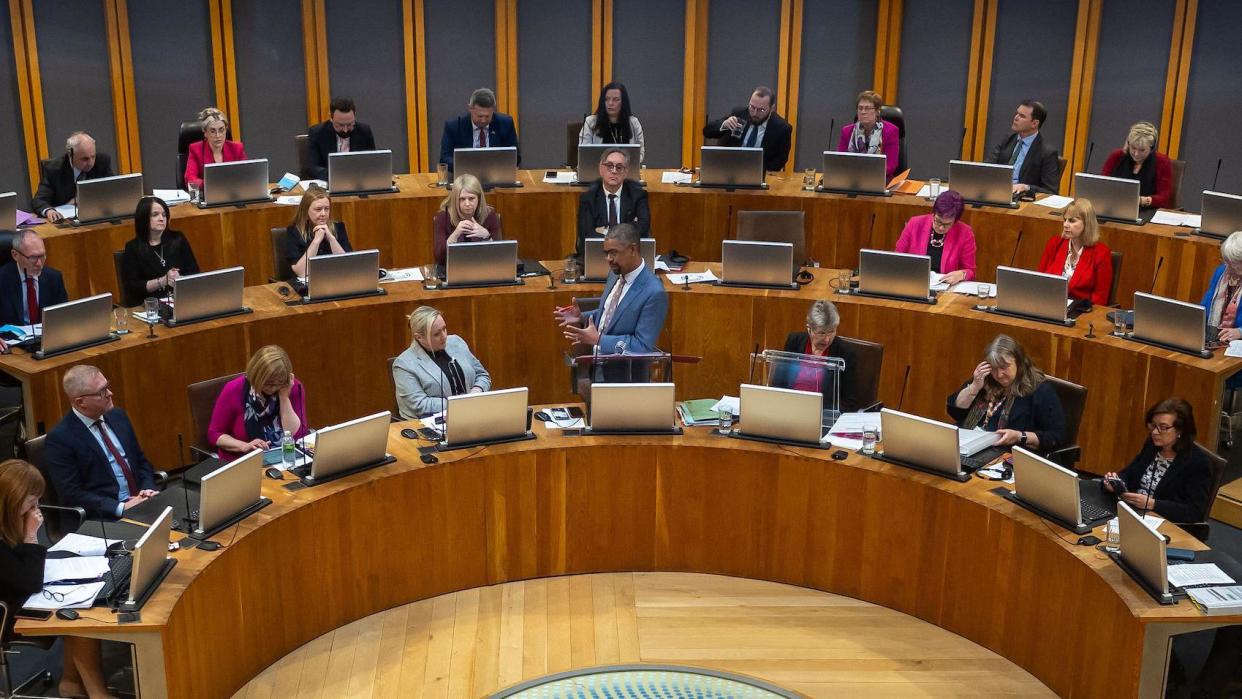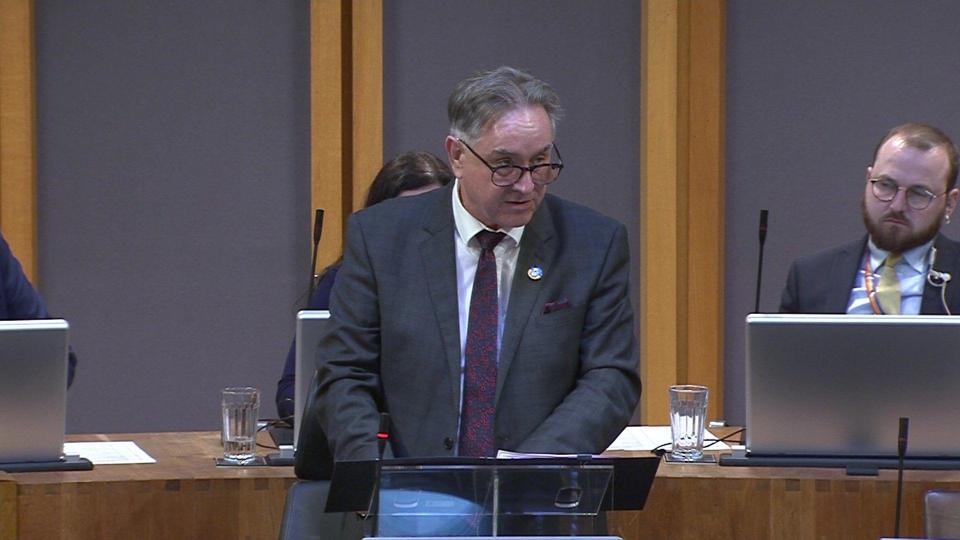Plans for more Senedd politicians get go-ahead

The Senedd will have more politicians and a new voting system from 2026, after the plans cleared their final hurdle in the Welsh Parliament on Wednesday evening.
Senedd members (MSs) voted to increase their numbers from 60 to 96, from the next election to Cardiff Bay.
Welsh government top lawyer Mick Antoniw said it was a chance to "strengthen the very foundations of our parliamentary democracy".
But the legislation was opposed by the Welsh Conservatives - Darren Millar said it was “deeply flawed” and would “only serve to undermine our democracy”.
In Wednesday's vote, on a Senedd reform bill, the changes were backed by 43 MSs from Labour, Plaid Cymru and the Liberal Democrats and opposed by 16 Conservatives.
The legislation therefore got the two-thirds support in the Senedd required to become law.
In a debate in the Welsh Parliament, Plaid Cymru leader Rhun ap Iorwerth promised the new law would "make sure that the people of Wales are no longer democratically short-changed".
Supporters insist that 36 more members are needed, to scrutinise both the law-making process and Welsh ministers' actions, in a far more powerful Senedd than the fledgling institution which began 25 years ago.
But Conservatives argue that the extra spending involved, estimated to be as much as £17.8m a year, should go on schools and hospitals.
Concerns have also been expressed, particularly by Conservatives and Liberal Democrats, over the new voting system to elect members to the bigger Senedd.
Critics say it gives parties too much power to decide who gets elected
Ministers say it will make elections simpler by giving voters one ballot paper.
The current combination of 40 local and 20 regional MSs would be replaced by 16 larger constituencies, each represented by six members.
Parties would put forward lists of ranked candidates for every seat, under what is known as a closed list system, preventing voters from backing individual candidates.
Out will go the Westminster-style first-past-the-post electoral process, to be replaced by a system that reflects the share of the vote each party has received in each of the 16 constituencies.
On Wednesday, Counsel General Mick Antoniw told the Senedd it had a "once in a generation opportunity to invest in our democracy" by "creating a modern centre that represents and reflects 21st century Wales".
MSs were being asked to vote for a “more effective Senedd, with greater ability and capacity to hold the Welsh government to account, a more representative Senedd to better serve the people of Wales", he said.
“I urge all members to seize this opportunity to strengthen the very foundations of our parliamentary democracy.
“To refresh, improve and modernise the legislature to make it fit for the many challenges we face as a nation.”
'Biggest power-grab'
But Mr Millar, for the Welsh Conservatives, saw the legislation as doing precisely the opposite.
It was “deeply flawed”, would “only serve to undermine our democracy”, and would “damage the relationship between the public and their elected representatives”, he said.
The closed list electoral system would strip away “a fundamental right enjoyed by Welsh voters of generations".
He said it would take away the "opportunity for them to choose the individual person they want to represent their area and giving that right to party elites in charge of electoral candidate lists”.
“It is the biggest power-grab from the people of Wales that it has ever suffered in the history of Welsh democracy.”
The Conservative said the costs of “almost £20m each and every year” was money “that our national health service, our schools and our other public services are crying out for”.
Mr Millar added: “Wales needs more doctors, dentists, nurses and teachers. It does not need more politicians.”
However Plaid Cymru's Rhun ap Iorwerth said the new law would "make sure that the people of Wales are no longer democratically short-changed, compared with other national parliaments in these islands".
It would create a "bigger, more representative Senedd, a parliament fit for the 21st century and beyond gives us a new foundation on which to build a fairer Wales and to prepare for the forms of political and constitutional change we know are coming".
"And this will be the parliament that is ready to serve a confident independent Wales, when we're ready to take that step taking the levers of change into our hands."

'Fundamentally flawed'
Welsh Liberal Democrat leader Jane Dodds, her party's sole representative in Cardiff Bay, has been a major critic of the closed list system in the legislation.
She told the Senedd that she would vote for the bill as moving away from the “outdated first-past-the-post system” was “definitely a positive step”.
But she said the reform bill as it stands “remains fundamentally flawed”.
“The introduction of closed party lists risks robbing voters of true choice," she said.
Unlike the UK Parliament, neither the current or proposed future Senedd rules would allow voters to expel members who misbehave after they are elected.
Presiding Officer Elin Jones, who referees debates, has told BBC Wales the electors should have that right.
In Westminster, MPs who break the rules can face by-elections if enough of their constituents sign a petition in favour.
No such recall system exists in the Senedd.
Ms Jones said that she was "continually disappointed by politicians whether they are elected here, Westminster or local councils that let the people that voted for them down by their own behaviour".
“I think it’s right that people should have to recall members at that point and to have a view as to whether they should be continuing in that role," she said.
One complication is that under the new electoral system, as with current regional members, there will be no by-elections, the mechanism by which voters replace their MP if enough of them sign a recall petition.
Mr Antoniw told the Senedd on Wednesday that there was "cross-party support for the standards of conduct committee taking evidence to identify an effective and proportionate recall machinery that works for Wales and for our electoral system".


